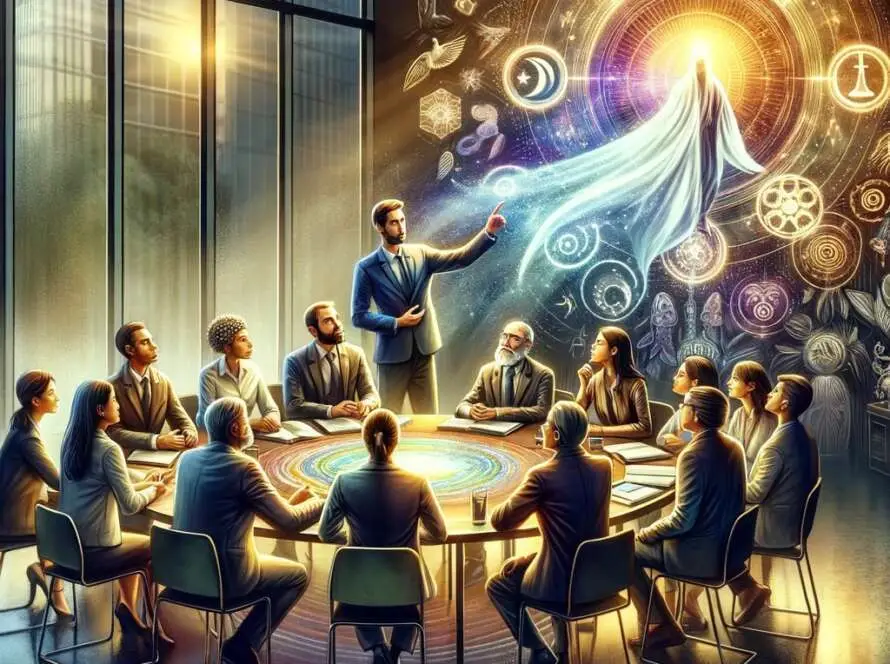Spiritual intelligence is still an ill-defined concept, even though much research is ongoing. However, if it’s not possible to define it directly, it is possible to approach its main dimensions.
A Window onto the Invisible
Spiritual intelligence can be defined as the ability to understand that life has meaning beyond what is visible, to recognize the deep connections between phenomena, and to access a deeper understanding of existential questions. It embodies a quest for meaning, values, understanding of oneself, and the universe. Carl Jung, Viktor Frankl, S. Schwartz, Danah Zohar, Ian Marshall, Frances Vaughan, and Robert Emmons are some of the brilliant minds who have paved the way for this exploration, as highlighted in our previous discussions. We have also seen that it is possible to measure it.
Spiritual intelligence also allows a person to see beyond superficial appearances, to question the meaning of life, and to develop coherence between their values and their actions.
Beyond Appearances
Spiritual intelligence enables us to transcend superficial illusions, to question the deep meaning of our existence, and to align our actions with our deepest values. Its pillars, including self-awareness, the ability to contextualize one’s life within a universal framework, and authenticity in the practice of one’s beliefs, form the foundation of our inner balance. It also encompasses compassion, empathy, tolerance, and the ability to draw on spiritual experiences for healing and growth.
Unlike emotional intelligence, which focuses on managing one’s own emotions and those of others, spiritual intelligence embraces a broader dimension, that of the quest for meaning and connection with the transcendent.
Consciousness at the Heart of the Debate
One must want to develop their spiritual intelligence. Yet, it is evident that violence and destruction have reigned unchallenged for millennia on this earth. Is the human being fundamentally bad, and is spiritual intelligence merely a chimera invented by New Age proponents? To answer this question, I think it is important to understand how a decision-making process unfolds, as illustrated by the decision-making spiral in the annex. This diagram reveals that at the end of the decision-making process, there is an almost ontological choice between conscious reflection, guided by intuition, and impulsive reaction, driven by emotional instinct. This moment of choice embodies our freedom, oscillating between calm and turmoil.
Towards Enlightened Decision-Making
Choosing inner peace and self-listening opens the door to a connection with the universal informational field, mentioned by David Bohm, Rupert Sheldrake, and Erwin Laszlo. Every decision is a crossroads or a convergence point where the chosen path irrevocably alters the fabric of our reality. Discerning this pivotal moment is crucial for our development and for the ecosystems to which we contribute.
Meditation, art, reflective analysis, coaching, and astropsychology are just a few of the avenues leading to spiritual intelligence. These diverse and enriching practices invite deep introspection, self-knowledge, and acceptance of our essence. But whatever the means chosen, the journey begins with an act of will: to resolutely commit to the path of personal discovery.

